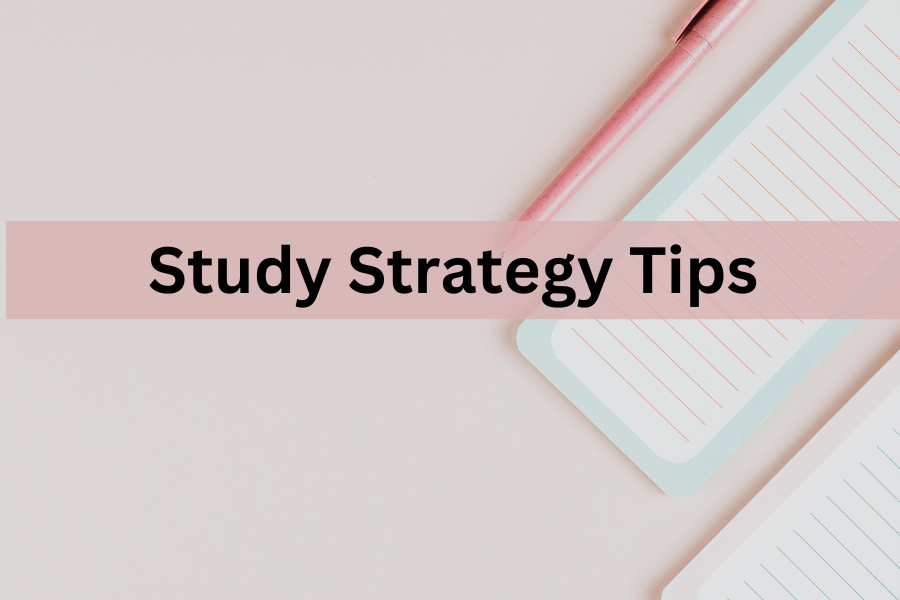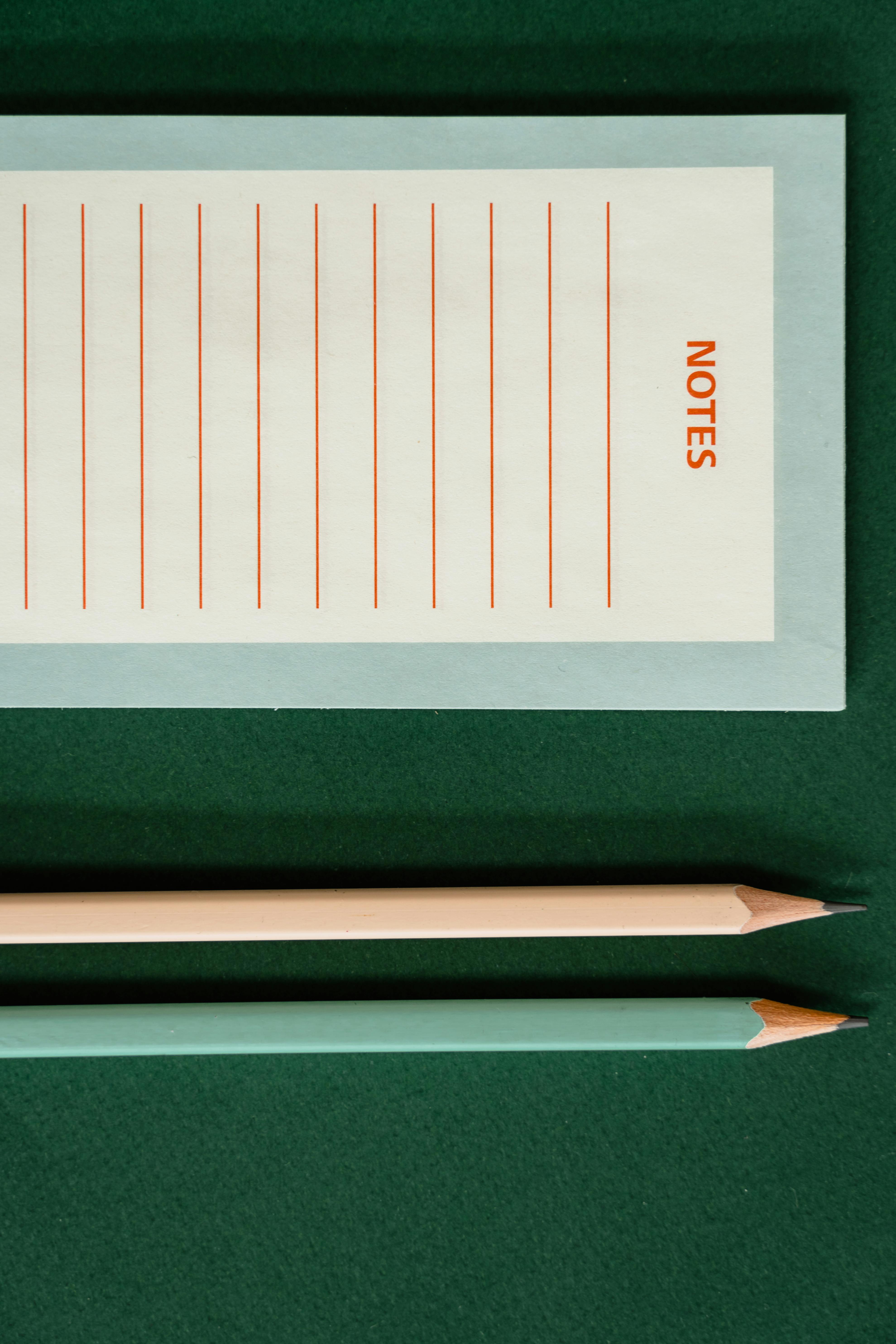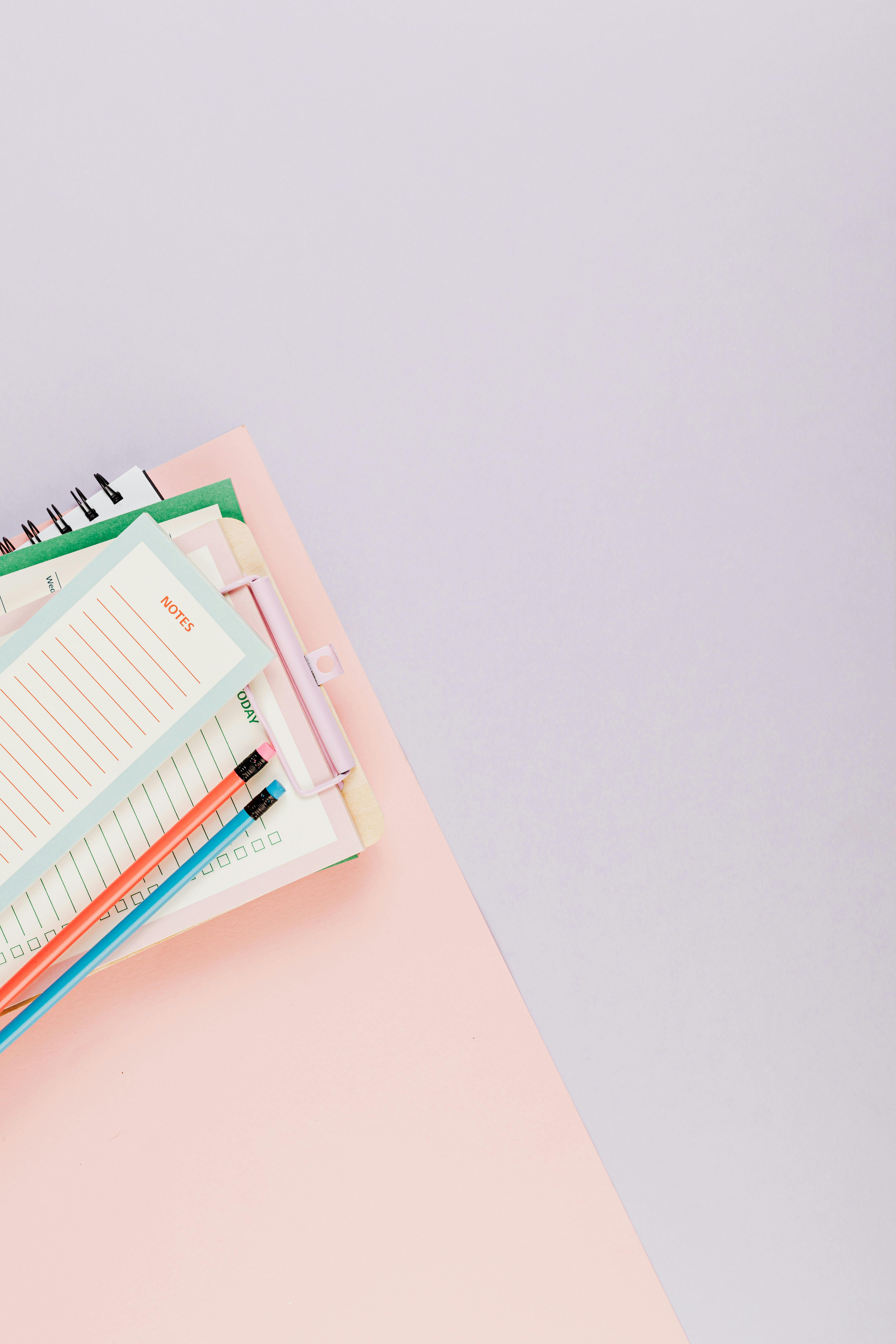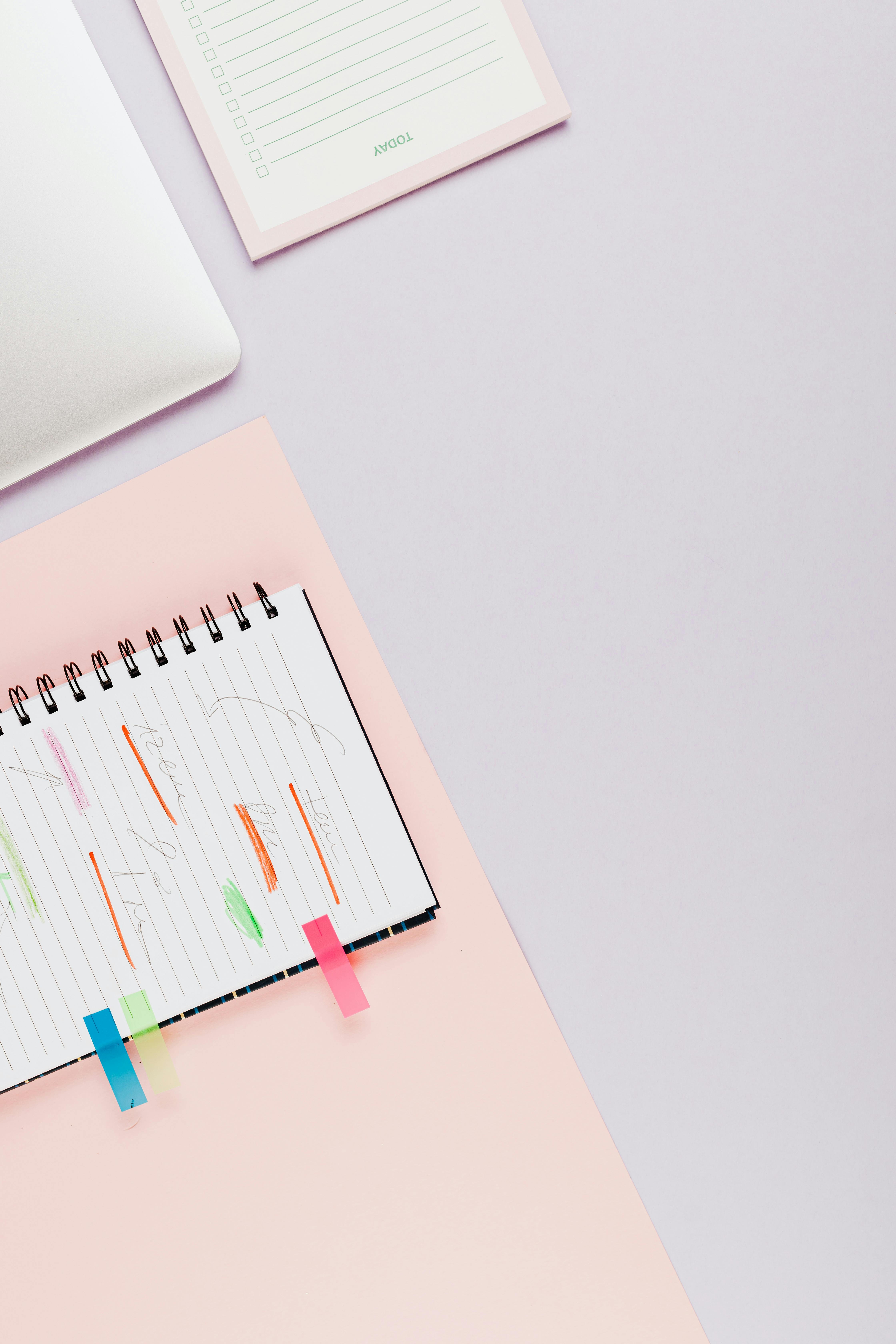9 Amazing Study Strategy Tips to Try Right Now
If you're looking for study strategy tips to help you in school, this post is for you.

Are you looking for new ways to supercharge your study sessions and boost your learning? Here's a diverse range of study strategy tips that are designed to help you study smarter, not harder. Whether you're preparing for a big exam, tackling a challenging subject, or just aiming to improve your study habits, these practical and effective strategies can make a significant difference in your academic journey.
From time management techniques to active learning approaches, we'll explore a variety of study strategy tips to enhance your focus, retention, and overall study experience.
This post will walk you through a world of study strategies that can take your learning to the next level!
This post is all about study strategy tips.
Study Strategy Tips
1. Create a Study Schedule

Creating a school study schedule is an incredibly effective study strategy. Having a clear plan for each study session helps you stay focused and avoid distractions. When you know exactly what to study and when, it’s easier to get started and stay on track, reducing the urge to procrastinate.
Also, a regular study routine helps build good habits. Studying at the same time each day makes focusing and remembering easier. Overall, making a study schedule helps you manage your time, stay focused, and achieve your academic goals without the stress.
Related Posts You Might Like: How to Create a Study Timetable for High School
2. Study Chunking

Study chunking is a learning technique that involves breaking down large amounts of information into smaller, more manageable pieces, or "chunks." Also, this method makes studying less overwhelming and can help improve your understanding of the material.
In order to effectively use this study strategy make sure you:
- Start by identifying the material you need to study.
- Divide the material into smaller, manageable chunks. For a textbook chapter, this might mean breaking it down by subheadings. For a list of vocabulary words, you could group them into sets of five or ten.
- When possible, group related information together. For example, if you're studying history, you might group events by time period or by theme.
- And don't forget to engage with the material actively. Summarize the information in your own words, create flashcards, draw diagrams, or explain the material to someone else.
Overall, study chunking is an effective strategy that helps you focus better and understand the material more deeply.
3. Mnemonic Devices

Mnemonic devices are tools that help you remember information more easily by associating it with something familiar or simpler to recall. Also, they can be anything from acronyms and acrostics to rhymes and songs.
Here's a list of different mnemonic devices, so that you can choose the right ones for you:
- Acronyms
- ROYGBIV: Colors of the rainbow (Red, Orange, Yellow, Green, Blue, Indigo, Violet)
- HOMES: The Great Lakes (Huron, Ontario, Michigan, Erie, Superior)
- Acrostics
- Every Good Boy Deserves Fudge: Lines on the treble clef (E, G, B, D, F)
- My Very Educated Mother Just Served Us Noodles: Order of the planets (Mercury, Venus, Earth, Mars, Jupiter, Saturn, Uranus, Neptune)
- Rhymes
- "Thirty days hath September, April, June, and November": To remember the number of days in each month."
- In 1492, Columbus sailed the ocean blue": To remember the year Christopher Columbus sailed to America
- Peg System
- Associating numbers with specific words or images: 1 is a bun, 2 is a shoe, 3 is a tree
- First-Letter Mnemonics
- OIL RIG: Oxidation Is Loss, Reduction Is Gain (chemistry concept)
- PEMDAS: Parentheses, Exponents, Multiplication, Division, Addition, Subtraction (order of operations in math)
Mnemonic devices are a powerful study tool that makes learning more efficient, effective, and enjoyable. Also, they transform complex information into simple, memorable chunks, enhancing both short-term and long-term recall.
4. Study Group

Using study groups lets you learn alongside others. Sharing ideas and discussing topics can help you understand things better. Instead of just reading or listening, study groups get you actively involved. Also, explaining concepts to others can really help you remember them. So, teaching something to someone else is a good way to learn it yourself. In study groups, you take turns explaining things, which can strengthen your understanding.
If you don't have access to a study group in your class, here are some alternative ways to form one:
- Online Platforms: A ton of school-oriented websites allow you to connect with students from different locations and universities who are studying the same subjects.
- Student Organizations: Join a student organization related to your class. These groups often have study sessions, tutoring programs, or resources for finding study partners.
- Find a study buddy: Your study group doesn't have to be a large group of people. If you can find just one person in your class to study with, you'll still be able to benefit from group studying
Overall, study groups are a fun and effective way to learn. Also, they make studying less lonely, help you understand things better, and prepare you for working with others in the future.
5. Stay Organized

Being organized is essential for successful studying. When you're organized, you use your time better. You know what needs to get done and can plan your study sessions, so you're not rushing at the last minute. It also helps cut down on stress.
Also, it's easier to concentrate when you're organized. You're not distracted by clutter or looking for stuff, so you can really dive into your study sessions. When your study materials are organized, it's easier to remember things. You can review your notes and study guides without a hassle, which helps you remember stuff longer.
Overall, being organized helps you set clear goals. Also, since you know what you want to achieve in each study session, you can track your progress. It helps you manage your time, reduce stress, stay focused, and get stuff done, setting you up for success now and in the future.
Related Post You Might Like: 13 Essential Back-to-School Organization Tips
6. Minimize Distractions

Minimizing Distractions is super important because when you're not distracted, you can really focus on what you're studying. This means you understand things better and remember them longer. Also, distractions can stress you out and make studying harder. So, minimizing them creates a calmer, more relaxed study environment. Here are some tangible ways to minimize distractions:
- Find a cozy spot where you can study without interruptions. It could be your room, a quiet corner in a library, or a peaceful cafe.
- Keep your study area neat and clutter-free. A clean space helps you focus better without distractions.
- Use a timer to work in short bursts, like 25-30 minutes of focused study followed by a break. It helps maintain concentration.
- Put your phone on silent mode or turn off notifications to avoid distractions from calls, messages, or social media alerts.
- Tell your family or roommates when you're studying so they can avoid noisy activities or interruptions.
With these strategies, you can create an environment that minimizes distractions and maximizes your ability to focus, concentrate, and learn effectively.
7. Use Online Resources

Online resources are an easier way to study effectively. There's a ton of stuff online - videos, articles, quizzes, interactive tools - so you can find what works best for your learning style. Also, many online resources use cool stuff like videos and games to make studying more interesting and enjoyable. Quizzes, simulations, and interactive tools make learning more engaging and help you understand concepts better.
Here are my favorite ways to use the internet to study:
- Online Courses and Videos: Check out platforms like YouTube, Coursera, or Khan Academy for videos and courses related to your subjects.
- E-books and Audiobooks: Websites like Kindle or Audible have a ton of study materials.
- Websites for Quizzes and Practice: Websites like Quizlet or Duolingo offer quizzes and practice exercises to help you review and test your knowledge.
- Research Tools: Use Google Scholar or databases like JSTOR for research papers and articles.
Overall, with these resources, you can enhance your learning experience, access a wealth of information, and improve your academic performance.
8. Effective Note Revision

Revising your notes is a great tool because it helps you remember what you've learned for longer. Revision helps you see where you're struggling so you can focus on those areas. AND, actively revising your notes keeps you engaged and helps you learn better than just passively reading.
- Rewrite Notes: Rewriting your notes can help reinforce your memory. Try to put the information in your own words instead of just copying it.
- Highlight and Color-Code: Use highlighters and colored pens to make important stuff stand out. Color-coding can help you organize different topics.
- Mind Maps and Diagrams: Draw mind maps and diagrams to visually connect ideas and concepts. This makes it easier to remember complex information.
In short, revising your notes regularly helps you remember more, understand better, and feel more confident, making it a super effective way to study.
Related Post You Might Like: 11 Life-Changing High School Note-Taking Tips
9. Practice Quizzes

Using practice quizzes is a super smart study tip. Quizzes show you where you’re struggling, so you know exactly what to focus on. Also, taking quizzes makes you actively recall information, which helps you remember it better. Plus, just by making a practice quiz, you are already studying the material.
Here's how I like to make and use practice quizzes to study:
- Go Over Your Material: Start by reviewing your notes, textbooks, and any other study materials. Find the key points, important facts, and possible test questions.
- Create Questions: Write questions based on what you’ve reviewed. Mix it up with different types like multiple-choice, true/false, short answer, and essay questions. Or make the questions based on how you know your teacher likes to write questions
- Use Online Tools: There are lots of online tools like Quizlet, Kahoot, and Google Forms that make it easy to create quizzes. You can add images, videos, and more to make it interactive
- Review Your Answers: After taking the quiz, go over your answers carefully. Focus on the ones you got wrong and understand why.
- Focus on Weak Spots: Use your quiz results to see where you need more practice. Spend extra time studying those areas.
Overall, practice quizzes help you check what you know, identify weak spots, reduce exam anxiety, and keep your studying fun and effective.
This post was all about study strategy tips.
3 comments
Comments are closed.